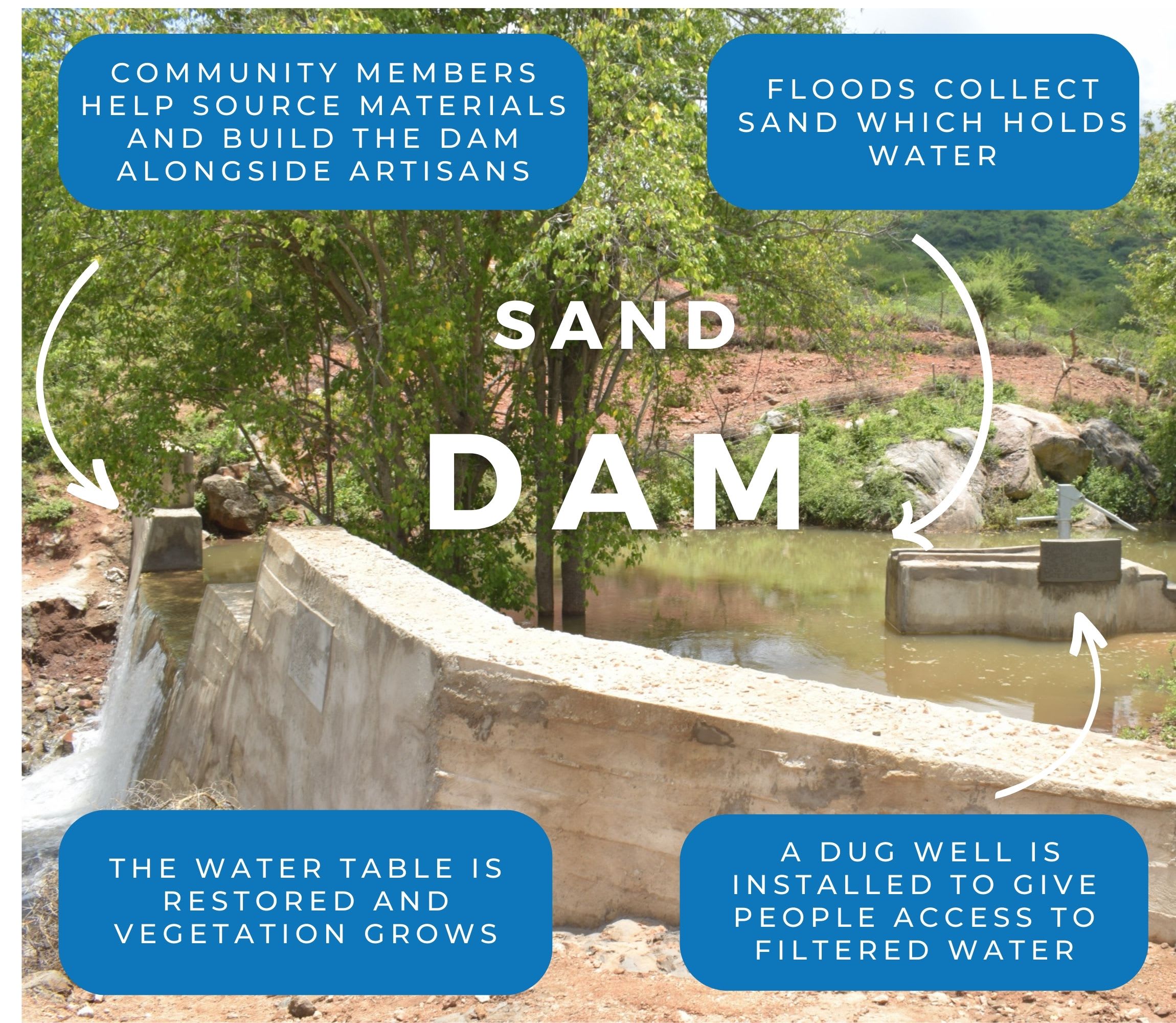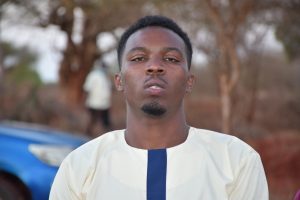The 3,381 people of Kyandali Community struggle to access sufficient water. Their only water source is distant scoop holes amongst treacherous rocks almost three miles away.

Field Officer Alex Koech shared what a day looks like for the people of Kyandali. "The community wakes up early at 3 am to embark on the search for water. Those who wake up late into the morning find long queues, which force them to spend an entire day at the scoop hole. As the water level drops in the scoop hole, the queues become longer and longer. Due to the long journey to the water point, Kyandali village residents have to use donkeys as their mode of transport, and those who do not have one have to borrow from their neighbors. Most husbands get up early to look for casual jobs, while wives are tasked with the burden of fetching water. Most older children have to accompany their parents to the scoop hole because they have to fetch water to carry to school."

The picture Alex paints is a life of hardship, a heavy burden everyone must carry.
34-year-old farmer Angeline Munyasya, seen below, shared, "I have to wake up every morning to go and fetch water for use at home. When I wake up late, I find long queues at the scoop hole because many people from other villages depend on it. I can only [have] a few jerrycans of water, which is not enough for drinking, cooking, maintaining hygiene, or irrigating the crops."

Children like Mumo, 8, must make the 3-mile trek alongside their parents.
Mumo shared, "I also have to accompany my mother while going to the water point because there is no water at home, and we come back towards the evening, leaving me exhausted and unable to even play with my friends."

The people of Kyandali Community spend all their time collecting water. All other life-essential tasks, such as caring for their families or getting an education, are put on the back burner; this traps them in a cycle of poverty that can't be broken without access to safe water.

The installation of the sand dam will enable people like Angeline and Mumo to no longer have to travel to the treacherous scoop hole, consuming all their time and energy. Instead, they can easily collect water, empowering them to dream of a brighter future.
Helping to solve the water crisis in this community will take a multi-faceted system. It requires the collaboration of the sand dam and a dug well. They will work together to create a sustainable water source that will serve this community for years to come.
The Proposed Solution, Determined Together...
At The Water Project, everyone has a part in conversations and solutions. We operate in transparency, believing it benefits everyone. We expect reliability from one another as well as our water solutions. Everyone involved makes this possible through hard work and dedication.
In a joint discovery process, community members determine their most advantageous water solution alongside our technical experts. Read more specifics about this solution on the What We're Building tab of this project page. Then, community members lend their support by collecting needed construction materials (sometimes for months ahead of time!), providing labor alongside our artisans, sheltering and feeding the builders, and supplying additional resources.
Water Access for Everyone
This water project is one piece in a large puzzle. In Kenya, Sierra Leone, and Uganda, we're working toward complete coverage of reliable, maintained water sources that guarantee public access now and in the future within a 30-minute round trip for each community, household, school, and health center. One day, we hope to report that this has been achieved!
Training on Health, Hygiene & More
With the community's input, we've identified topics where training will increase positive health outcomes at personal, household, and community levels. We'll coordinate with them to find the best training date. Some examples of what we train communities on are:
- Improved hygiene, health, and sanitation habits
- Safe water handling, storage & treatment
- Disease prevention and proper handwashing
- Income-generation
- Community leadership, governance, & election of a water committee
- Operation and maintenance of the water point

 Sand Dam
Sand Dam
 Rehabilitation Project
Rehabilitation Project
















